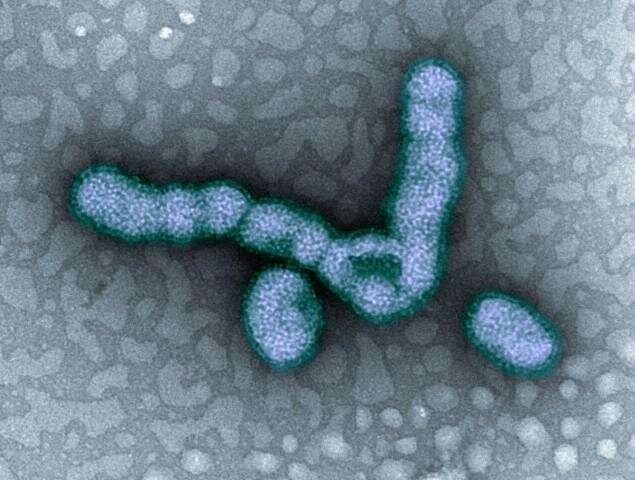Scientists review influenza vaccine research progress and opportunities

In a new series of articles, experts in immunology, virology, epidemiology, and vaccine development detail efforts to improve seasonal influenza vaccines and ultimately develop a universal influenza vaccine. The 15 articles are part of a supplement in the April 15 issue of the Journal of Infectious Diseases. Researchers from the National Institute of Allergy and Infectious Diseases (NIAID), part of the National Institutes of Health, and scientists supported by NIAID, are among the contributing authors. Barney S. Graham, M.D., Ph.D., deputy director of NIAID's Vaccine Research Center (VRC), and Michelle C. Crank, M.D., head of the Translational Sciences Core in the VRC's Viral Pathogenesis Laboratory, edited the supplement.
In an introductory article, NIAID Director Anthony S. Fauci, M.D. and Catharine I. Paules, M.D., an infectious disease physician at Penn State Health Milton S. Hershey Medical Center, underscore the public health need for improved influenza vaccines, noting the the approximately 291,000 to nearly 646,000 deaths worldwide each year due to seasonal influenza. They also discuss the possibility of another influenza pandemic, which occurs when a novel influenza virus to which most people do not have immunity arises unpredictably. The 1918 influenza pandemic caused an estimated 50 million to 100 million deaths.
The current seasonal influenza vaccine reduces influenza-related hospitalizations and deaths. However, people must get vaccinated annually due to constantly changing influenza viruses, and in some years, the vaccine confers less-than-optimal protection against infection. Drs. Fauci and Paules note that recent scientific advances, combined with scientists' efforts to coordinate and accelerate their research activities, have provided unprecedented momentum toward developing a so-called "universal" influenza vaccine. Such a vaccine would offer long-term protection against multiple seasonal and pandemic influenza viruses.
The supplement articles detail ongoing research and what remains to be learned about influenza—such as how the human immune system responds to influenza infection and vaccination. Experts also discuss how such research might influence vaccine design approaches and help the public health community better prepare for the next influenza pandemic.
In closing remarks, Drs. Crank and Graham, along with John R. Mascola, M.D., VRC director, note, "Vaccinology is experiencing a revolution thanks to scientific and technological breakthroughs of the past decade, and hopefully we can find the resolve, political will, and new business plans to take full advantage of these new opportunities and prepare ourselves before the next pandemic arrives."
More information: Catharine I Paules et al, Influenza Vaccines: Good, but We Can Do Better, The Journal of Infectious Diseases (2018). DOI: 10.1093/infdis/jiy633
















